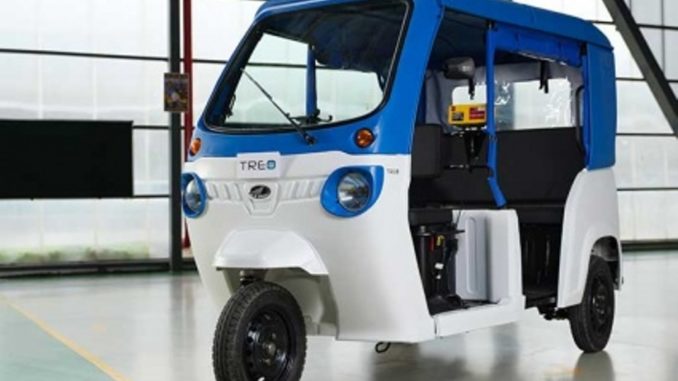
For the first time sales of Electric Rickshaws surpasses that of conventional ones in India, thanks the low cost ownership and favourable Government policies.
Switching to e-rickshaws has improved quality of life and earnings.
As per data shared by the Society of Manufacturers of Electric Vehicles (SMEV), the apex lobby body for electric vehicles, sales of electric three-wheeler segment grew 21 per cent during 2018-19 to 630,000 as against 520,000 sold in 2017-18. In 2018, sales of petrol, diesel and CNG-powered passenger three wheelers grew by just 10.6 per cent to 572,400 units, compared to 517,400 units sold in 2017-18.
Switching to e-rickshaws has reduced the physical fatigue these manual/cycle rickshaw drivers faced earlier and has improved their quality of life and earnings in addition to the drivers earning between 3 to 5 Euros on a daily basis.
The running cost of an electric three-wheeler is about Rs 0.5 per km while petrol powered three wheeler has a running cost of Rs 4 per km. However, an electric three-wheeler has a smaller driving range of around 130 km for a full charge, as compared to 190-200 km on a full tank of petrol.
Earlier this month in the Union budget, the Indian Finance Minister announced reduction of Goods and services tax (GST) for EVs, from 12 per cent to 5 per cent and a subsidy of around 647 Euros for the three wheeler segment with a price tag of 6465 Euros in order to promote the use of Electric vehicles. An additional income tax deduction of around 1940 Euros on the interest paid on loan for purchasing EVs and a customs duty exemption on lithium ion cells which help lower the cost of the lithium ion batteries in India as they are not produced locally was included in the announcement.
Manufacturers such as Mahindra and Mahindra, Lohia Auto, Cotton Greaves have been flooded with bookings for the Erickshaws. Sun mobility’s modest solution of battery swapping to reconfigure the entire EV ecosystem is what they are working towards with some serious heavy investment.
The transition towards Electric is round the corner and there is no doubt that Electric three wheelers will soon beat the conventional three wheelers in terms of low total cost of ownership. For an end user to purchase an E3W would be even more feasible post the BS-VI (Bharat stage emission standards) as a conventional E3W would become more expensive.
Text: Prathyush Sreenivasan
Picture: www.mahindraelectric.com
nline publication: Angela Budde
Source: ExtraEnergy


Be the first to comment